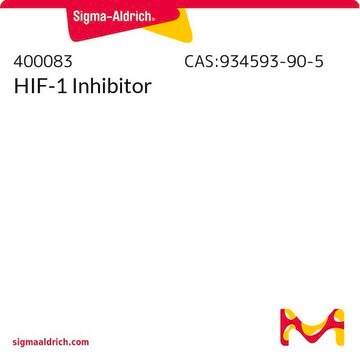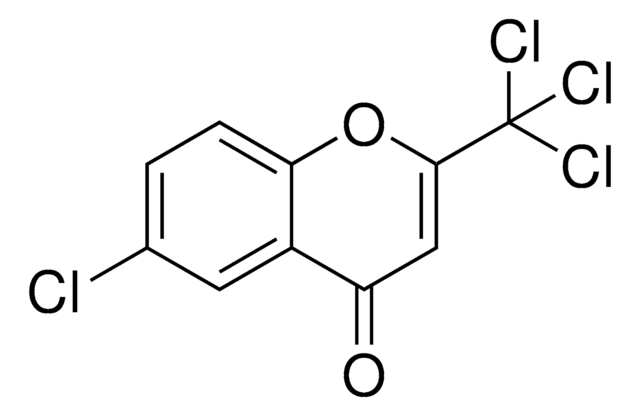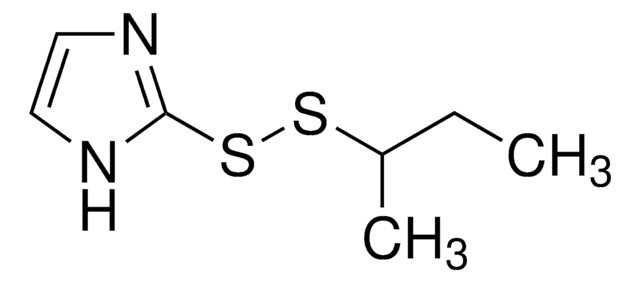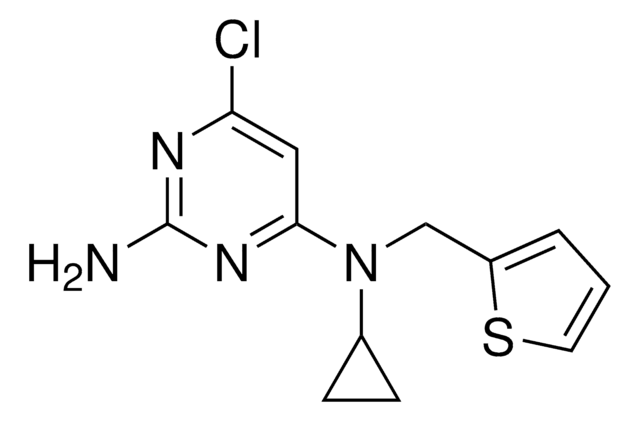F8807
FM19G11
≥98% (HPLC)
Synonyme(s) :
3-[(2,4-Dinitrobenzoyl)amino]-benzoic acid 2-(4-methylphenyl)-2-oxoethyl ester, [2-oxo-2-(p-tolyl)ethyl] 3-[(2,4-dinitrobenzoyl)amino]benzoate
About This Item
Produits recommandés
Niveau de qualité
Pureté
≥98% (HPLC)
Forme
powder
Couleur
off-white to light brown
Solubilité
DMSO: ≥40 mg/mL
Température de stockage
2-8°C
Chaîne SMILES
Cc1ccc(cc1)C(=O)COC(=O)c2cccc(NC(=O)c3ccc(cc3[N+]([O-])=O)[N+]([O-])=O)c2
InChI
1S/C23H17N3O8/c1-14-5-7-15(8-6-14)21(27)13-34-23(29)16-3-2-4-17(11-16)24-22(28)19-10-9-18(25(30)31)12-20(19)26(32)33/h2-12H,13H2,1H3,(H,24,28)
Clé InChI
XVUOIWIIQVGWAJ-UHFFFAOYSA-N
Application
- to study the effects ofFM19G11-loaded gold nanoparticles (NPs) on self-renewal and proliferation of ependymal stem progenitor cells (epSPCs) of mice
- to study its effects on the O6-methylguanine DNA-methyltransferase (MGMT) expression in glioblastoma (GBM) cells
- to study its effects on microphthalmia-associated transcription factor (MITF) expression in melanoma cell line
Actions biochimiques/physiologiques
Code de la classe de stockage
11 - Combustible Solids
Classe de danger pour l'eau (WGK)
WGK 3
Point d'éclair (°F)
Not applicable
Point d'éclair (°C)
Not applicable
Certificats d'analyse (COA)
Recherchez un Certificats d'analyse (COA) en saisissant le numéro de lot du produit. Les numéros de lot figurent sur l'étiquette du produit après les mots "Lot" ou "Batch".
Déjà en possession de ce produit ?
Retrouvez la documentation relative aux produits que vous avez récemment achetés dans la Bibliothèque de documents.
Notre équipe de scientifiques dispose d'une expérience dans tous les secteurs de la recherche, notamment en sciences de la vie, science des matériaux, synthèse chimique, chromatographie, analyse et dans de nombreux autres domaines..
Contacter notre Service technique








